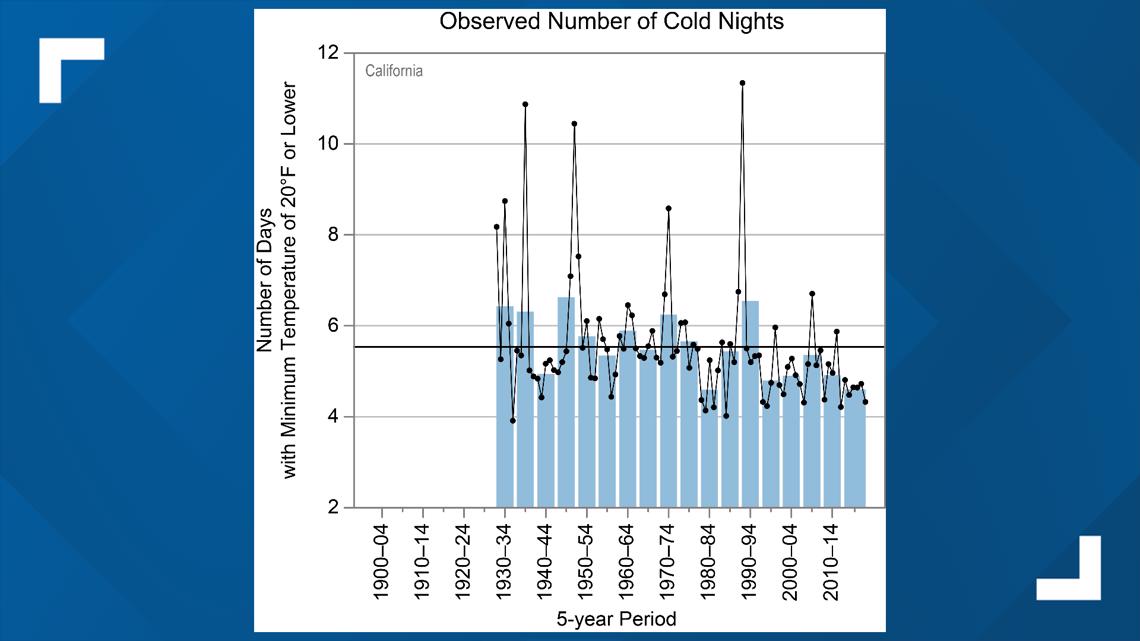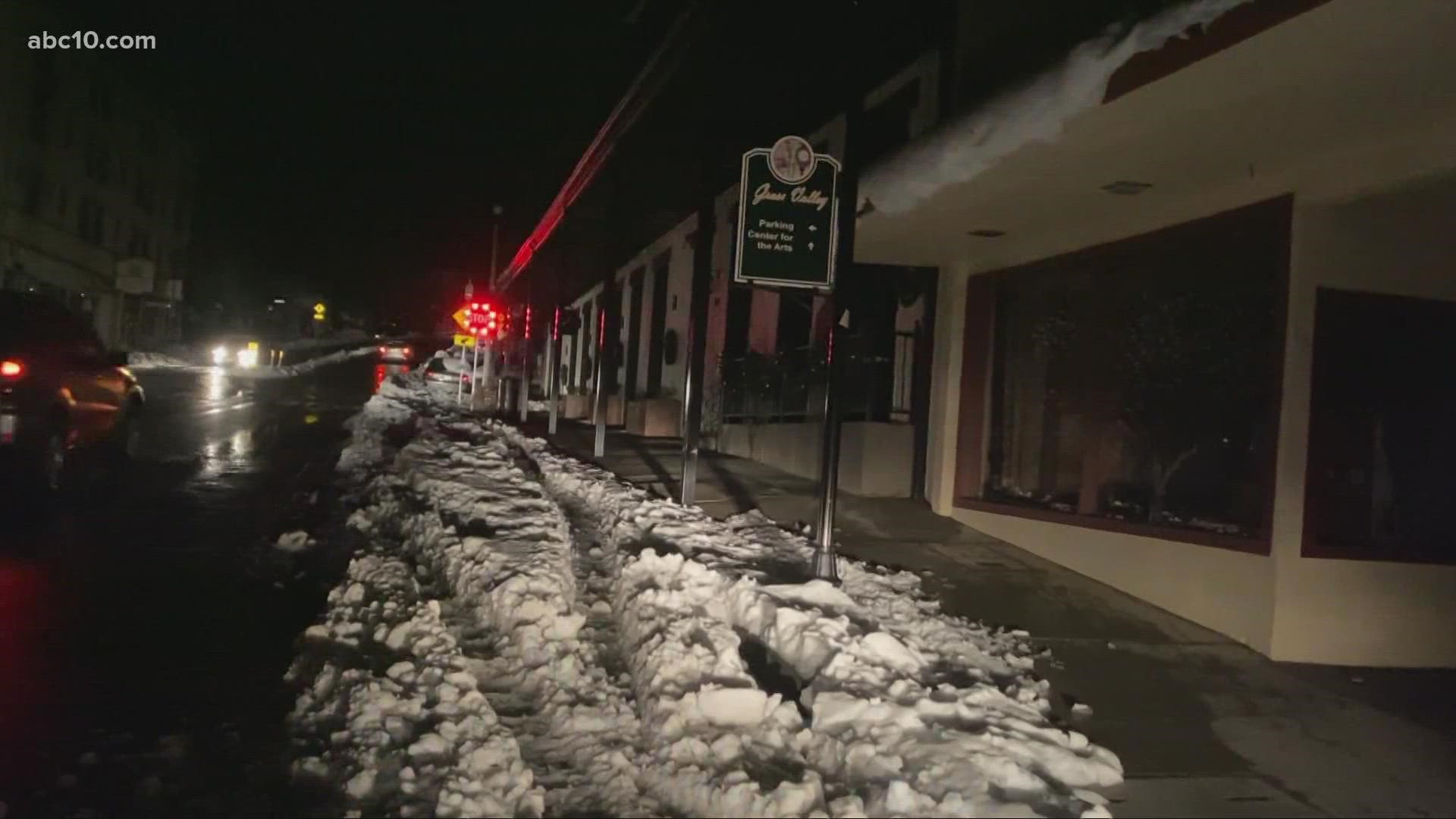CALIFORNIA, USA — The lack of winter cold snaps are now another issue piling on the the climate change situation. The National Oceanic and Atmospheric Administration (NOAA), released it's climate summary findings, and in California, the key messages involved a 3°F temperature increase over the 20th century.
The warming temperatures over time are causing big swings across the board. Warmer temperatures mean snow is prone to fall at higher altitudes. What would have fallen at lower altitudes is becoming rain. The lack of snow limits our use of snowpack, a natural reservoir in California.
"California has the highest variability in precipitation at the annual time scale than anywhere in the nation" says Jeanine Jones with the Department of Water Resources.
The average number of nights under 20°F is about 5.5 nights. For California, that's cold, but those numbers are gradually dropping closer to 4 days since 1994.


California's record heat over the last decade has shown a high pressure blocking pattern. The high pressure system that typically sits near the coastline in the summer is hardly budging in the winter months. This climate pattern shift is pushing storm systems much further north. Without storms in California, we find ourselves dealing with extreme temperatures, drought and more wildfires.
Multiple factors are contributing to this change, but to simplify things, humans are mostly responsible for these changes. Over time, the population has increased, more cars are on the road and more emissions are being released.
As cities grow, trees and open land are replaced by more pavement, homes, buildings and shopping centers. This is also leading to warming. It's called the "Urban Heat Island Effect," and the bigger the rate of growth, the more emissions, energy, and heat will come out of these areas.
Although December of 2021 saw record snow totals for the Central Sierra and an abundance of rain in the valley, rising temperatures are expected to increase the rate of moisture loss in our soils. NOAA says this will likely contribute to a reduction in our water supply.
WATCH ALSO:



















